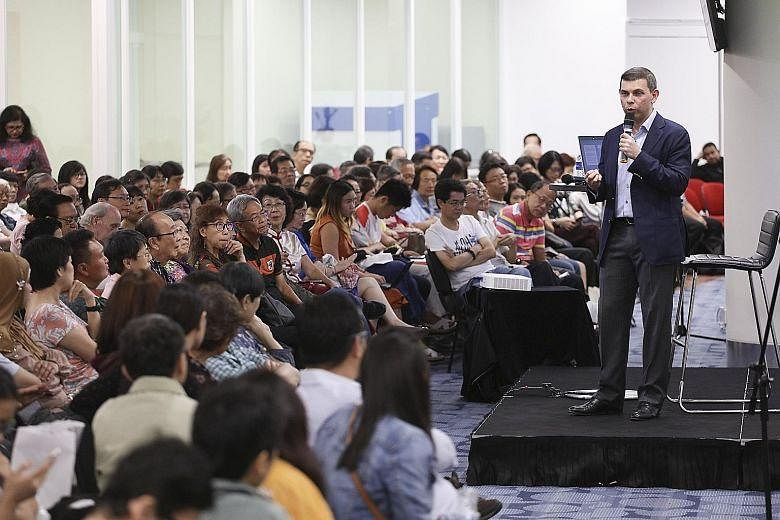The proliferation of fake news has to be fought by newsmakers being more proactive in communication, good journalism and smart citizens.
This was the view of Straits Times editor and Singapore Press Holdings' editor-in-chief for its English/ Malay/Tamil Media Group Warren Fernandez on how to deal with the problem.
In an era of increasingly sophisticated fake news, governments and other organisations must respond rapidly to rumours and correct misinformation as quickly as possible.
"In today's world, you can't wait till tomorrow, or next week, or several days later. You have to be quick to put your own view out and answer questions when they arise," Mr Fernandez told some 330 people at his askST@NLB talk at the National Library last night.
But just as important, he added, is good journalism, and news organisations that are credible and reliable.
While surveys show that trust in the media and social media platforms has been on the downward trend in many countries, including Singapore, he said it was heartening that trust in journalism has risen.
This shows a desire among readers to "find brands or correspondents they can count on" amid a proliferation of fake news, said Mr Fernandez, adding that at The Straits Times, accuracy is critical.
"We need to get the news out quickly, but while we want to be fast and first, it's more important to get it right... if we make a mistake and it's pointed out to us, we will correct it," he said, noting that not all social media platforms did the same.
Smart citizens, too, are an important part of the chain. They need to inform themselves with the right facts and not spread news that has not been verified, he said.
The Straits Times has embarked on sessions to engage readers and help them make sense of the news. It is also looking at working with other media organisations to see how to flag stories that could be misleading, as has been done in other countries, such as France.
Mr Fernandez also mooted the idea of working with other organisations, such as the NLB, to make ST's archives available and accessible to the public so people can fact-check stories more easily.
Turning to the role of the community, he noted that businesses and organisations wield "enormous power" to channel advertising or sponsorship dollars to platforms they trust and respect, and not to sites that attract views by promoting hate or divisiveness.
"If you support that kind of information, then that is the kind of information and journalism that will proliferate," he said.
He added that The Straits Times will also be making representations to a committee of MPs set up to recommend how Singapore should tackle fake news, including possibly passing new laws.
If there are new laws, he said, he hoped they would strike a balance between weeding out fake news that is deliberately misleading, malicious and used to profit off others, while "letting journalists get on with doing their jobs".
The next askST talk on March 23 will feature Invest editor Lorna Tan, who will speak on how to plan for retirement using one's Central Provident Fund.


